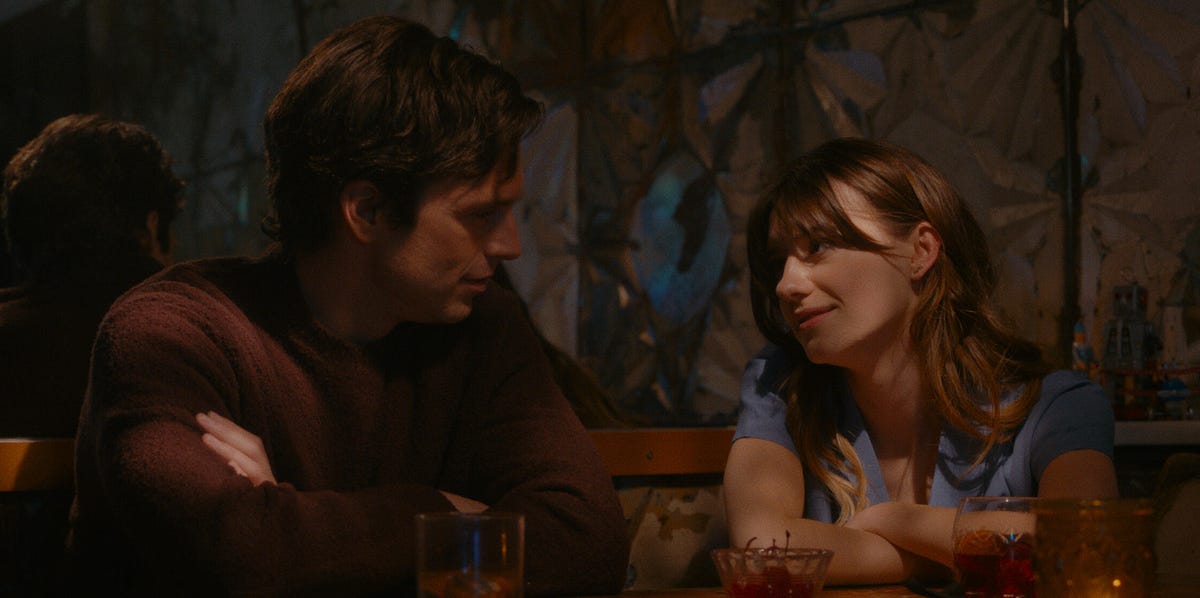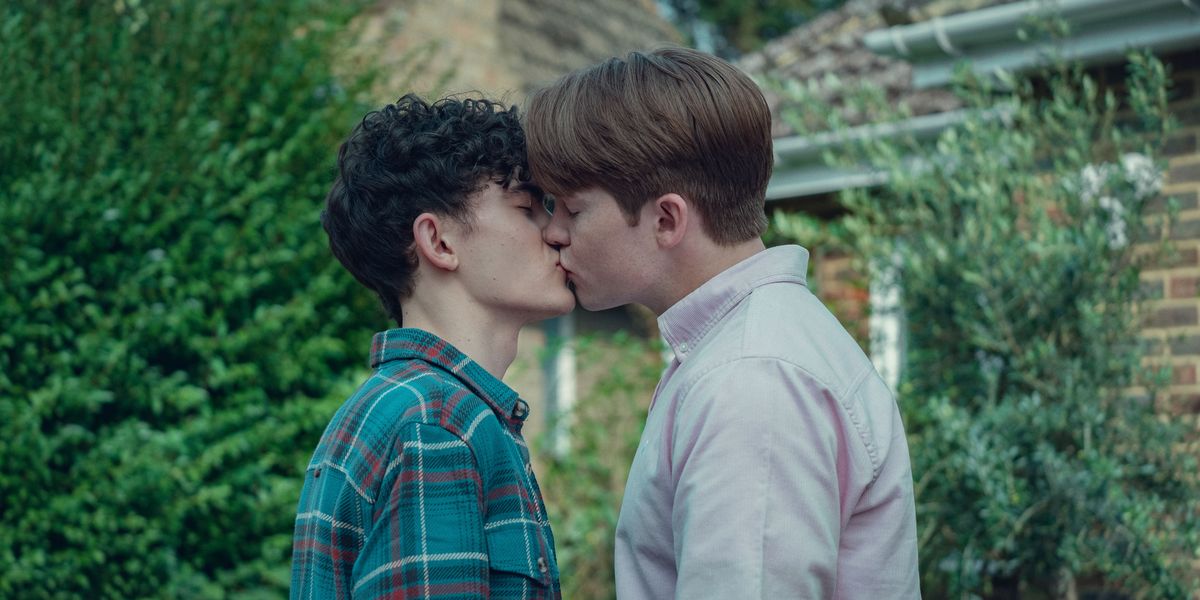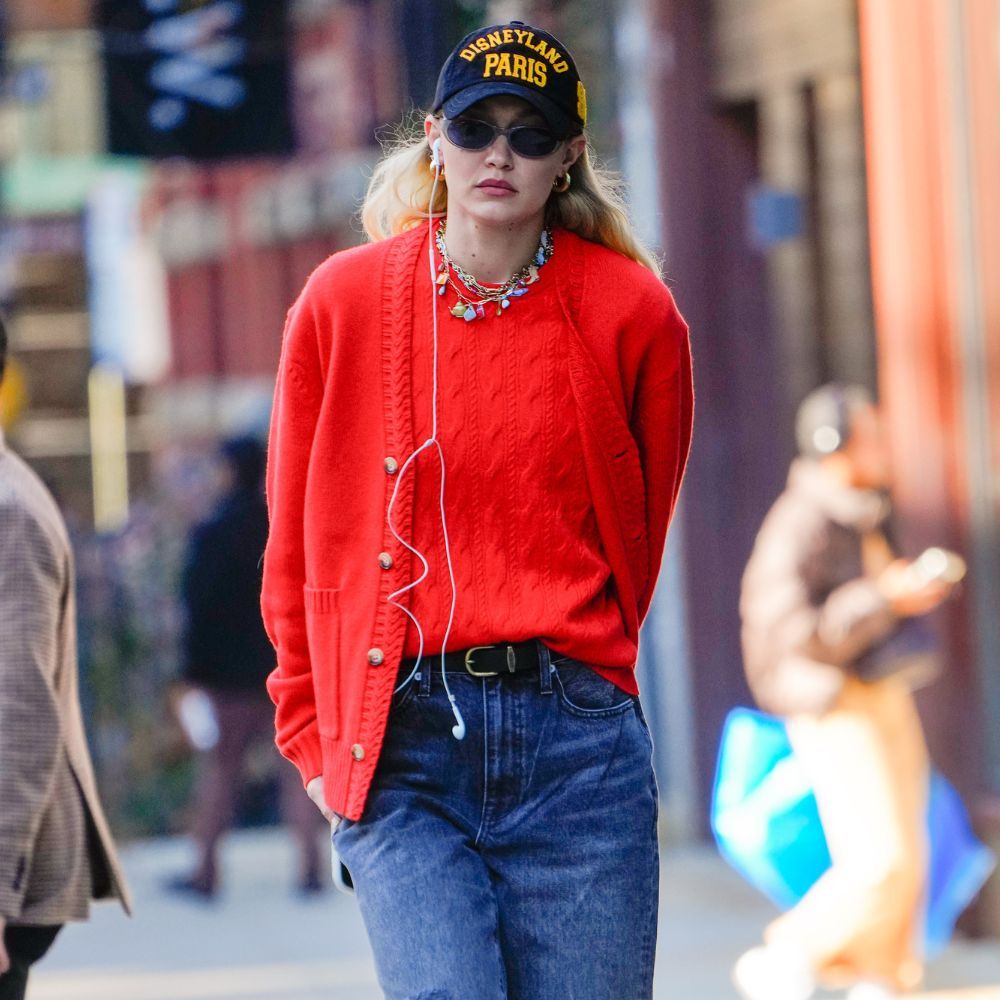Why We Should Be Ambitious About Our Friendships
I was out for a walk recently, venting via text to a friend about something silly, and I couldn’t stop myself from bookending my rant with apologies for bothering them. Their response stopped me midstep: “I want to know what’s going on with you.” As someone who wants to be as ambitious about my friendships as I am my work, but who always worries about needing a little “too much” from the people I lean on, the word “want” caught my attention.
Ultimately I think that’s what we all need in relationships: People who want to show up for us, and vice versa. This kind of care and intention feels like a form of ambition—that’s not a term I would have previously used in a sentence about friendship, but it is one that makes sense to me now.
While there are plenty of social scripts about striving toward career goals or other accomplishments named in the “congratulations” card section, sustaining your friendships isn’t necessarily considered an ambitious act, and on the surface, it seems obvious why. Thinking of friendships that way could make them feel transactional—something to be achieved rather than a loving bond that you share. But when I began reporting a book exploring the topic of ambition, I was struck by how many people wondered aloud why they couldn’t be ambitious about friendships. I also found people who were equally proud to have fostered their friend group as they were of careers, families, or academic accomplishments.
As experts have found, friendship takes work. It’s expected that we’ll work hard in school, in our careers, and even in romantic relationships—finding them and staying in them—but ambition toward building friendships is often diluted down to networking, a function of work rather than something that warrants drive and intention of its own.
The more I listened to people describe the kinds of friendships that shaped their lives–best friends, friends specific to an activity or group they participated in, life-long friendships and new ones–I thought about my own. While I knew how much my friends mattered to me, learning to be ambitious about friendships required not just that I show up, but that I practice letting other people in. It meant embracing the fact that I’m inherently needy, even when the faulty self-reliance of one kind of ambition tells me I should be able to do it alone, or that I’m overstaying my welcome by asking too much of my friends.
Through my reporting, I met people who described wanting to be more intentional about their friendships and building sustained communities. They talked about how grief nudged them to get to know neighbors; they shared the value in signing up for an artistic swimming group; they talked about friendship and community as a form of self-care and as a means of hope. To hear them describe it, they had developed an outlet for a more sustainable, meaningful sort of ambition toward their friendships.
Yearning for stronger, more substantial connections isn’t news: Loneliness is considered a public health threat. Though some research shows that people with strong friendships have better physical and mental health, other research indicates we tend to lose friendships as we age. Our reliance on each other never truly fades, but too often, it’s shoved underneath too many obligations and too little time and resources.
Rhaina Cohen, a journalist and author of the forthcoming book, The Other Significant Others, has focused years of research and reporting on friends who are so close, they rise to the level of partners. “This is a big question I’m trying to deal with: what does it mean to be partners?” Cohen said. What kept coming up for people, she explained, was “this mix of deep and profound knowledge of another person, but also a kind of everyday presence, and sense that that person is interested in all of the mundanities of your life, and will debrief with you at the end of the day.”
In a piece for The Atlantic, Cohen noted that in LGBTQ+ communities, there’s a long history of high value being placed on friendships, including friends as “chosen family.” “I think, for a lot of reasons, in the queer community, it’s just much more understood that friends can play a variety of roles and not be peripheral,” she told me. There still remain few roadmaps for organizing one’s life around friends, Cohen said, but she said she thinks there is a “growing recognition that having a social world beyond the nuclear family setup is important.”
One of the things Cohen was thinking about before we spoke via Zoom, she said, was “to the extent that there’s ambition involved in building new ties, it involves putting in a lot of work on the front end to make friendship easy on a day-to-day level.” She shared an example: She lives in a home with her husband, as well as two good friends and their two children. They are a five-minute walk from one of her other close friends, with about 20 other friends and acquaintances within a 15-minute walking radius. “When our cultural norms treat living with friends as a passing phase and our housing is designed for nuclear families, it takes imagination to dream up a life built around friends,” Cohen added. “And it takes ambition to make the idea a reality.”
Meanwhile, others point to small ways to be ambitious about friendship. “When I think about ambition, I think about focus, I think about intention, I think about momentum toward a goal,” said Danielle Bayard Jackson, a friendship coach and educator, and author of an upcoming book on friendship. Jackson explained that much of this is about taking our intention and making it tangible.
She suggested putting a post-it where you can see it, listing three to five people you want to prioritize connecting with, whether it’s a close friend or someone you just met. You can also develop what Jackson calls friendship rituals—standing dates to have a call, get coffee, watch a show, or whatever works for you—to ensure friends don’t get pushed to the scheduling back-burner. It takes effort, and it shows desire, something Jackson said we should normalize in our platonic relationships. “We all want to feel like somebody’s thinking of you,” she added.
As I listened, I thought about a phone call with a friend when I was at my most unambitious. My personal life had imploded, right in the thick of a chronic illness flare. I burst into tears a split-second after she said “hi,” sobbing as she answered my plea–don’t let me be alone–without me even saying it aloud. She was there when I had nothing to offer, when I didn’t even want to be in my own company. Subconsciously, a new desire crystalized: I promised to show up for my friends as they had for me; I’d be ambitious about needing my friends–caring deeply, pushing myself to open up more, and tending to friendship as a need, not a bonus.
In Alissa Quart’s book, Bootstrapped: Liberating Ourselves from the American Dream, she writes about what she calls the “art of dependence,” which, in The New York Times, she explained as “accepting aid with grace and, crucially, recognizing the importance of others.” Quart’s framework extends far beyond friendship, but I now refer to the concept often myself as a sort of internal checkpoint. Just as I want to celebrate and shout the names of everyone I have worked with, who have helped me, taught me, and opened doors, I want to practice the same with the friendships that sustain me, the people who are there for all of the other things. Nothing I touch or think or am is without some form of their care and support, and I strive for that to go both ways.
Recently, I spoke to Carmel, 40, who told me she always wanted to have a long wooden table, with friends from all different parts of her life gathered together, listening to music and breaking bread. On her 40th birthday, that’s exactly what she got to have: 20 friends from different chapters of her life: from college, to coworkers, to friends of friends who became her friends, to friends she’s known decades, and some who are new, around a table spanning all different ages and life circumstances, together.
“For me, success looks like, if I had a crisis, if I were in need, someone—a friend—would be there for me and vice versa,” she added. “It’s like the reciprocal action of reaching out when in need. I can do that and feel confident that a friend will answer the call, and that I am someone’s first call.”
Rainesford Stauffer is a writer, Kentuckian, and author of the forthcoming book, An Ordinary Age, out in May 2021.
Check out our Latest News and Follow us at Facebook
Original Source









